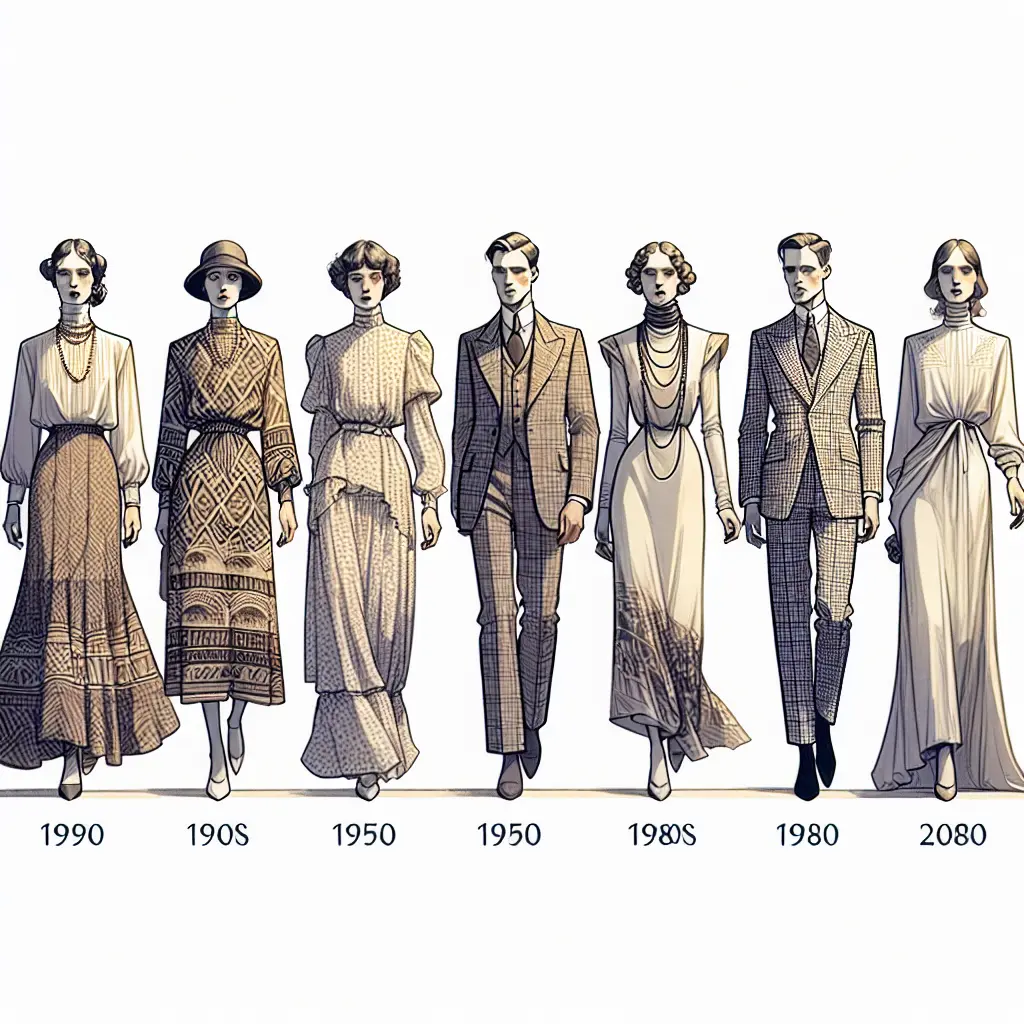
The evolution of minimalism in fashion is an enthralling saga of transformation, highlighting cultural shifts and redefining aesthetics in the sartorial world. From its roots as a reaction to extravagance, minimalist fashion has become a testament to simplicity, functionality, and elegance. As we delve deeper into this evolution, it's essential to consider recent developments and societal trends that continue to shape this enduring fashion movement.
Understanding Minimalism in Fashion
Minimalism in fashion initially gained traction during the late 20th century. This period saw a significant shift from opulence towards more streamlined and simplistic designs. The history of minimalist fashion reveals a profound dedication to clean lines, neutral palettes, and high-quality materials. This approach was not just an aesthetic choice but also a philosophical stance against excess and waste.
Modern minimalist fashion remains influential, with designers focusing on versatile pieces that effortlessly transition through seasons. This adaptability is crucial in today’s fast-paced world, where consumers increasingly seek timeless styles that offer both functionality and sophistication.
Recent Developments: Minimalism in the Context of Current Events
The minimalist fashion movement has continuously evolved, mirroring broader societal changes. For example, recent events in the sports world, such as the All Blacks' victory over Argentina, reflect a return to basics and fundamentals—a principle echoed in minimalist fashion. Just as the All Blacks focused on core skills to secure their win, minimalist designers emphasize foundational elements like fabric quality and craftsmanship.
Similarly, the performance of ex-Man Utd star Greenwood for Marseille highlights a return to form through simplicity and efficiency—key tenets of minimalism. In fashion, this translates to garments that prioritize fit and form over embellishment.
The Role of Minimalist Fashion Designers
Minimalist fashion designers are celebrated for their visionary approaches that have left an indelible mark on the industry. These designers challenge conventional norms by prioritizing subtlety and refinement. For instance, the controversy surrounding Dame Laura Kenny's promotion of dresses worn during her tenure as a BBC Olympics pundit raises questions about authenticity and the influence of public figures on fashion trends.
Minimalist designers often eschew celebrity endorsements in favor of organic growth driven by quality and design integrity. This ethos resonates with consumers seeking genuine connections with their clothing.
The Minimalist Wardrobe: Timeless Appeal
A key aspect of minimalist fashion is its focus on creating a minimalist wardrobe—a curated collection of versatile pieces that offer endless styling possibilities. This approach aligns with current trends towards sustainability and mindful consumption.
Consider the rise of versatile garments that can transition from day to night or adapt to various occasions. This flexibility not only underscores the practical appeal of minimalist clothing but also encourages consumers to invest in quality over quantity.
Case Studies: Minimalism's Influence Across Industries
The influence of minimalist fashion extends beyond clothing into other industries, including technology and hospitality. The growth analysis of the hospitality accounting software market reveals a trend towards streamlined solutions that prioritize efficiency—mirroring the minimalist ethos of doing more with less.
Furthermore, recent advancements in culinary arts, such as techniques to perfect dishes like gnocchi without compromising texture (When To Add Gnocchi To Your Soup), highlight a preference for precision and simplicity over complexity.
The Future Trajectory of Minimalist Fashion
As we look towards the future, the evolution of minimalism in fashion suggests a continued emphasis on sustainability and ethical practices. This movement challenges us to reconsider our relationship with clothing, advocating for an appreciation of well-crafted essentials that withstand temporal shifts.
Engaging with recent rumors surrounding public figures like Hailey Bieber illustrates how personal choices reflect broader societal trends. Bieber's penchant for understated yet chic styles embodies modern minimalist fashion aesthetics, resonating with audiences seeking elegance without excess.
Similarly, stories such as Gordon Central ending their losing streak emphasize perseverance through strategic refinement—a parallel to the continuous evolution of minimalist fashion.
Conclusion: Embracing Minimalist Fashion Evolution
Minimalism in fashion is more than a trend; it’s a movement that embraces simplicity, functionality, and elegance. Originating as a counter to extravagance in the late 20th century, minimalist fashion emphasizes clean lines, neutral palettes, and high-quality materials, challenging wasteful excess. Today, its timeless appeal persists, offering versatile, season-transcending pieces that cater to the modern consumer's desire for practicality and sophistication.
This evolution reflects broader societal shifts, paralleling events like the All Blacks' strategic focus on fundamentals and Greenwood’s efficient playstyle—each echoing minimalism’s core tenets of quality and simplicity. Minimalist designers champion subtlety and craftsmanship over fleeting endorsements, resonating with consumers who seek authenticity in their clothing choices.
The minimalist wardrobe, characterized by versatile staples, aligns with sustainable consumption trends, urging us to invest in quality over quantity. This ethos transcends fashion, influencing technology and hospitality sectors by promoting streamlined solutions and precision.
Looking forward, minimalism’s trajectory suggests a future anchored in sustainability and ethics. It challenges us to reconsider our relationship with clothing, advocating for well-crafted essentials that defy temporal shifts. Personal style choices by figures like Hailey Bieber highlight minimalism's modern aesthetics, while stories of perseverance through refinement mirror its ongoing evolution.
As we engage with this influential movement, let us appreciate its capacity to inspire clarity and purpose in our lives. Whether through fashion or lifestyle choices, minimalism guides us toward what truly matters—quality, authenticity, and enduring value.
We invite you to reflect on how minimalism influences your world. Share your thoughts and experiences in the comments below—let's continue this conversation on how we can integrate minimalist principles into our lives for greater impact and satisfaction.
Thank you for joining me on this exploration of minimalist fashion. I look forward to hearing your insights and continuing this journey together.
Julianne Waters